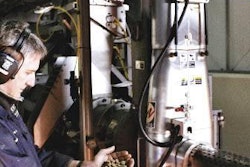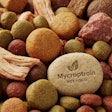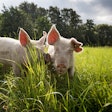Natural and organic food sales for humans have been the on the rise as evidenced by top natural foods retailers such as Whole Foods and Wild Oats stores. Foods that have been grown without additives, hormones, pesticides or herbicides have piqued interest among consumers, and this trend has not only taken root in the petfood sector, but is growing at a healthy rate.
According to the Organic Trade Association (OTA), the organic and natural market for petfood is growing at a rate three times the rate of human organic food sales. The OTA also reports that organic petfood sales increased nearly 60% to US$14 million in 2003 from the year before, and predicts a 17% sales spike each year until 2008.
Natural, environmentally friendly
Sales of natural and environmentally friendly pet products will nearly double in the next five years and exceed US$1 billion in the United States by 2009, according to the Market Trends report "Natural, Organic and "Eco-Friendly Pet Products." The natural petfood segment makes up a large share of the market, totaling an estimated US$375 million in 2004. The report says sales of natural and organic petfoods are expected to double to US$754 million by 2009. This growth could be driven in part by the underdeveloped mass channel, the report suggested.
At approximately US$14 million, organic petfood sales remain a tiny fraction of the domestic petfood sales at 0.09%. Organic petfood represents just 3% of dog food and 2% of the cat food market, according to a 2005 report from the American Pet Product Manufacturers Association (APPMA). Therefore, the room for share growth is significant, given strong demand within this sector.
Room for the niche player
Several niche companies are entering this segment, offering organic and natural alternatives to generic petfood. One company, Miss Autumn's Barkery, located in Jackson, Missouri, USA, offers an "all-natural, organic gourmet biscotti that even humans can eat." Through extensive research on the ingredients typically used in dog foods, Victoria McDowell, CEO of Miss Autumn's Barkery, determined there was a need to offer high-quality treats at an affordable cost.
McDowell believes she has come up with a better way to feed our canine companions and started Miss Autumn's Barkery to manufacture customized dog food to be marketed and sold in stores like Cup N Cork, My Daddy's Cheesecake and the All Natural Food retailers.
Miss Autumn's Barkery also has a unique value proposition: It provides research services to inform you of your pet's dietary needs and is able to help any dog that may have a medical condition with customized organic and natural foods menusvery ingenious and unique indeed.
Future growth in the sector
I think this segment of the market is large enough to support growth, as competitive forerunner products are already opening up the market niche, and there is a growing trend to become ecologically sensitive and responsible. Niche players need to be sensitive to product differentiation, or lack thereof, both from a product uniqueness and brand view perspective.
There is no evidence that the mindset and impetus for natural and organic products will slow down any time soon. People are increasingly demanding natural, organic and environmentally friendly products for themselves, particularly the boomers and single profile consumerand it's a short leap to purchasing similar types of products for their pets, so expect continued growth in this segment for some time to come.

















